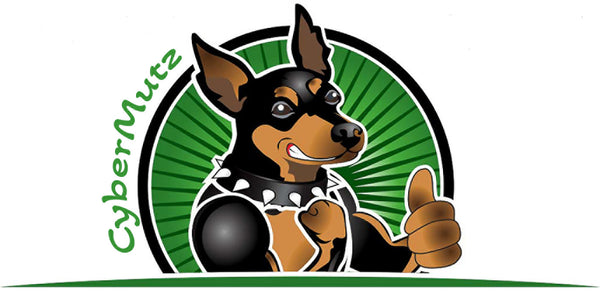
Do Dogs Feel Guilt? Or Are They Just Good Actors?
Share
Do Dogs Feel Guilt? Or Are They Just Good Actors?
Those guilty puppy eyes—real remorse or a well-practiced performance? Let’s find out.
You walk into the room and your dog immediately looks down, tail between their legs. You haven’t said a word, but somehow they already know. The chewed shoe on the floor, the trash scattered across the kitchen… they look guilty.
But here’s the million-dollar question:
Do dogs actually feel guilt—or are they just reacting to your mood?
Let’s dig into the truth behind the “guilty dog” look.
🐶 The Classic Guilty Dog Look
We all know it:
• Head down
• Ears back
• Avoiding eye contact
• Tail low or tucked
• That oh-so-dramatic look of shame
It’s become such a common scene it even sparked viral videos, memes, and entire Instagram accounts. But what’s really going on in your pup’s brain?
🧠 The Science: What Studies Say About Dog Guilt
Researchers have explored canine behavior to figure out if dogs feel true guilt—or if it’s something else entirely.
Here’s what they’ve discovered:
• Dogs do not feel guilt the way humans do.
• That “guilty look” is actually a reaction to your body language and tone.
• Dogs pick up on your cues, especially when you’re angry, tense, or upset.
In one study, dogs were scolded regardless of whether they misbehaved—and many still showed “guilty” behaviors even when they hadn’t done anything wrong.
So what does that mean?
Your dog might not feel guilt, but they definitely know when you’re upset—and they respond to it.
😅 So, Are They Just Really Good at Faking It?
Not exactly “faking,” but dogs are expert emotional readers. They’ve evolved to live closely with humans and have learned how to interpret our moods and behaviors to survive and thrive.
That “guilt” face is likely:
• A form of appeasement behavior
• A dog’s way of saying, “Please don’t be mad”
• A learned response after previous experiences with discipline
Basically, your dog isn’t being deceptive—they’re trying to keep the peace and avoid conflict.
🐾 Do Dogs Know When They’ve Done Something Wrong?
They do understand certain cause-and-effect relationships. For example, if chewing the couch leads to your angry voice, they’ll associate couch-chewing with something bad.
But guilt? That requires self-reflection and moral reasoning—traits more closely tied to human psychology.
In short:
Dogs can anticipate your reaction, but they don’t necessarily understand their actions as “wrong” in the moral sense.
👃 Why Timing Matters in Discipline
Ever tried scolding your dog for something they did hours ago? It rarely works. Why?
Because dogs live in the moment. If you don’t correct a behavior immediately, they won’t connect the dots between the action and your reaction.
Waiting too long can just confuse them—and make that “guilty” look even more misleading.
❤️ Should You Still Comfort a “Guilty” Dog?
Yes, especially if you’ve already corrected the behavior. Comforting your dog helps:
• Rebuild trust
• Ease anxiety
• Reinforce that you’re their safe space
Just remember not to mix affection during bad behavior. Save the snuggles for after they’ve calmed down and understood what’s expected.
🐕 The Verdict: Do Dogs Feel Guilt?
Not in the way humans do. That guilty look?
✔️ It’s real
❌ But it’s not guilt—it’s a reaction to your emotion, not theirs.
Still, it’s one of the many reasons we love dogs. They may not feel guilt like us, but they sure know how to read our hearts—and that’s a pretty special skill.
Want more behavioral insights, fun dog facts, and training tips?
Follow our blog or check out our shop at CyberMutz.com for gear that shows your pup’s personality—guilt-free and full of style.
